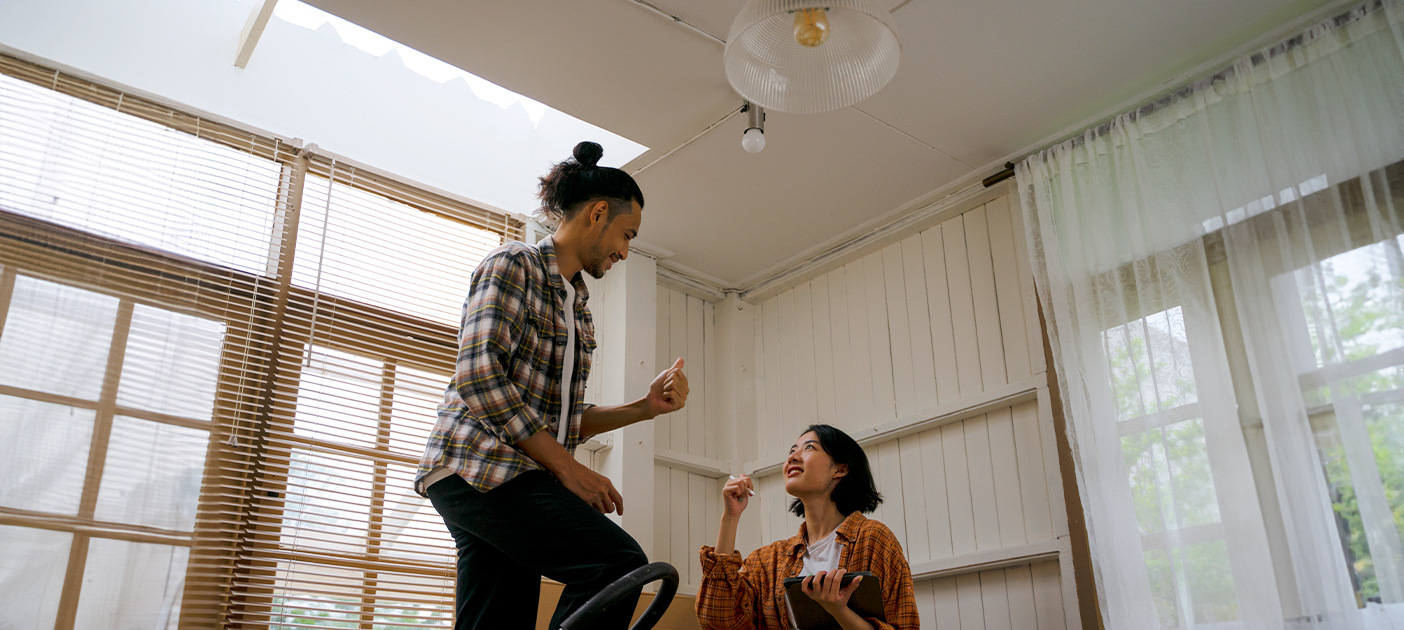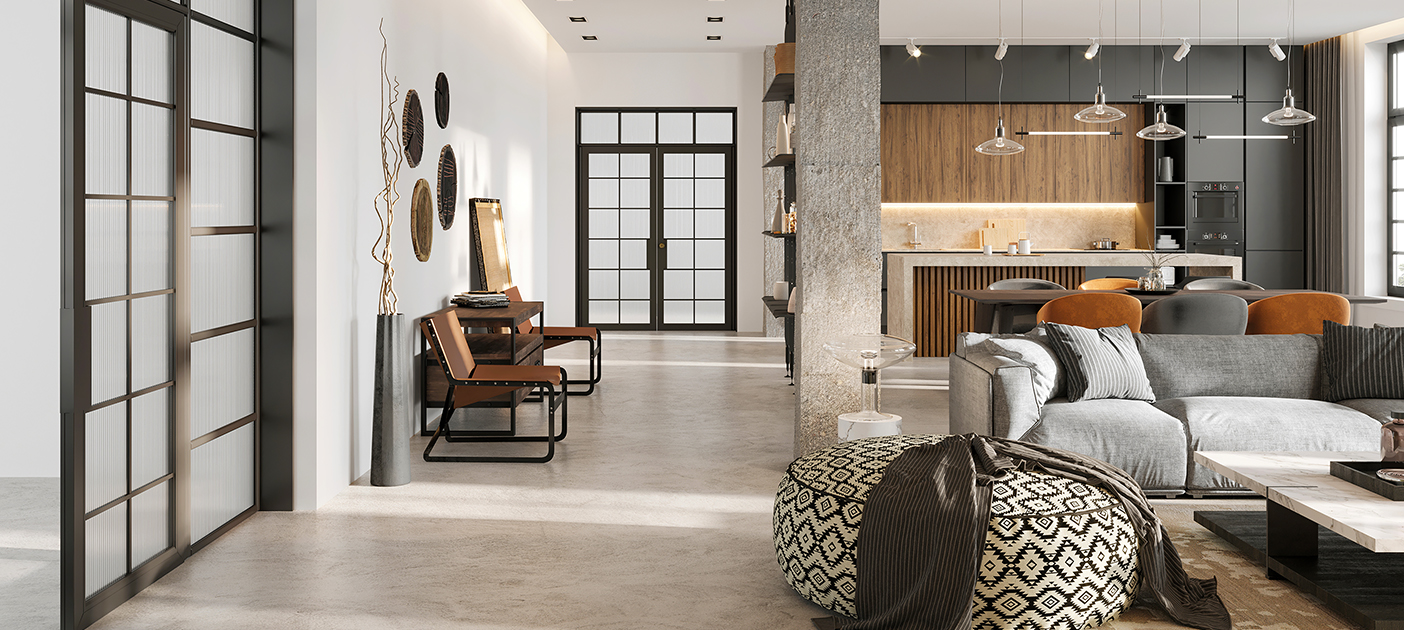![]()
If you’ve only got a minute:
- Set a realistic budget to avoid overstretching your finances.
- Guide your property search more effectively by listing your "must-haves" (needs) and "nice-to-haves" (wants) in a home.
- Other key considerations include location, size, type of property and home condition.
- Use tools like MyHome planning tool or get an In-Principle Approval to determine your affordability.
![]()
For many, the concept of "home" transcends a mere physical space – it represents a sanctuary, and a reflection of personal identity. It will also be one of the most significant investments of a lifetime. Buying a home is a thrilling and rewarding experience, but it can also be stressful. From setting a budget, evaluating location, size and amenities, to the lifestyle you envision within the walls of your dream home, each step requires careful consideration.
Here are 4 tips to help you navigate the journey of finding your perfect home.

1. Set a realistic budget
Buying a home is not only a major milestone in life but a long-term financial commitment too. This is why it is important to take your time to work out a budget before taking the plunge.
To get started, determine your affordability by factoring in expenses such as the downpayment for your home, option fees, stamp duties, legal fees, potential renovation expenses as well as monthly mortgage repayments. Doing so allows you to hunt for a property within your means and avoid overstretching your finances.
Read more: Top 3 affordability concerns of first-time home buyers
Take time to check if you're eligible for any grants or incentives that can alleviate your financial burden. If public housing is what you’re after, compare the various grants that you can get from buying a BTO, resale and/or executive condominium (EC). Picking the right housing grant can lead to significant savings!
Find out more: What are the housing grants available in Singapore?
If you’re uncertain about which property types (HDB, Executive Condominium, Condo/Landed) are within reach, take advantage of the MyHome planning tool to help you work out your sums.
Alternatively, get an In-Principle Approval (IPA) to better understand your borrowing capacity (find out the maximum loan amount you can take up with the bank) to streamline the purchasing process.
2. Location
One of the major changes to housing policies is the new classification of HDB Build-to-Order (BTO) flats set to take effect from the second half of 2024. The new classification of HDB BTO flats introduces 3 distinct categories based on location preferences.
Standard flats will be spread across various locations islandwide, constituting the majority of the housing supply. Plus flats, on the other hand, will be strategically situated in more desirable areas, offering conveniences like proximity to MRT stations and town centres. Prime flats (currently offered under the Prime Location Public Housing (PLH) model) will be found in the most coveted locations, typically closer to the city centre.
There will be long-term implications to choosing Plus and Prime flats, such as longer Minimum Occupancy Period (MOP) and tighter restrictions on resale and renting compared to Standard flats. Thus, you’d need to consider these implications when choosing a location of your flat.
Read more: New classification for HDB BTO flats
The proximity of your home to essential amenities such as schools, markets, medical facilities, public transportation, and recreational areas has significant impact on your daily life as it saves you time and effort in commuting. Furthermore, homes with better access to amenities, malls and public transportation tend to hold or appreciate in value over time.
In addition, do explore the Urban Redevelopment Authority (URA) master plan as it provides valuable insights into the future development and infrastructure changes in the area. This can influence the desirability and value of your property over time.
Whether you prefer a bustling city life or a quiet suburban setting, your choice of location should align with your preferences and priorities.
A pleasant environment to your liking contributes to your overall happiness and well-being. If you are a family with kids or are considering having children in the future, you’d want to explore the availability of schools in the neighbourhood too.

3. Property type and size of home
Based on your current living arrangement, consider what works and what doesn't and identify features that are non-negotiable and what would be nice to have but aren’t necessary for your home.
For example, having a walk-in closet (nice-to-have) could be desirable, but if the home offers ample storage space through other means, it might not be a deal-breaker. If you have pets or enjoy outdoor activities, having a backyard or a balcony might be necessary. Likewise, a dedicated home office space is a must-have if you work from home most of the time.
Take time to consider the number of bedrooms you need, especially if you're planning to expand your family. Having spare bedrooms can be invaluable since they can easily shift from serving as a guest room/home office to a space for kids. Your property type should align with your lifestyle and preferences.
By listing your "must-haves" (needs) and "nice-to-haves" (wants), you'll have a clear blueprint to guide your search more effectively.

4. House condition
The condition of the house plays a crucial role in immediate and future expenses, depending on the extent of renovation required. Whether you're eyeing a resale home or a brand-new condominium, scheduling inspections is vital. Identify acceptable issues and deal-breakers – for instance, minor flooring and wall imperfections versus water damage and structural cracks. These defects are often very costly to fix.
The “Renovation” tab under DBS Home Marketplace allows you to compare and explore various home renovation services by our trusted home renovation partners. Get inspired by the design ideas available and find out cost estimates that can help you budget better for your new home.
While virtual tours are increasingly popular, nothing beats physically visiting a property to assess its layout, lighting, ventilation, and overall ambience. Make sure to take note of factors like sound and noise levels. For instance, lower levels are more prone to street noise, especially if the property is located near busy roads and they typically have less natural light and limited views. Higher levels, on the other hand, tend to offer better views, improved natural light and reduced street noise, but they do not have the advantage of convenience and can be less appealing for those who have mobility concerns.
It is best to visit and view properties on various levels and different times of the day to get a first-hand experience of the environment. Pay attention to shared facilities, like swimming pools and gyms, to ensure they resonate with your lifestyle. Make sure to assess the overall vibe and check if the space, layout and surrounding feel comfortable and pleasant to you. This helps to narrow down your list to the top few units you prefer.
All in all
Buying a home is a long-term financial commitment. It is important that you buy a house that you can afford, and not spend beyond your means. Make use of online tools and resources like DBS MyHome planning tool to help you work out your sums and DBS Home Marketplace to find a place that meets your budget and preferences.
There are no hard and fast rules when it comes to finding the right home. Remain open and flexible throughout the process, and refrain from rushing into a decision that doesn’t align with your needs and preferences. With proper planning, the quest to finding your dream home can be a lot easier!






